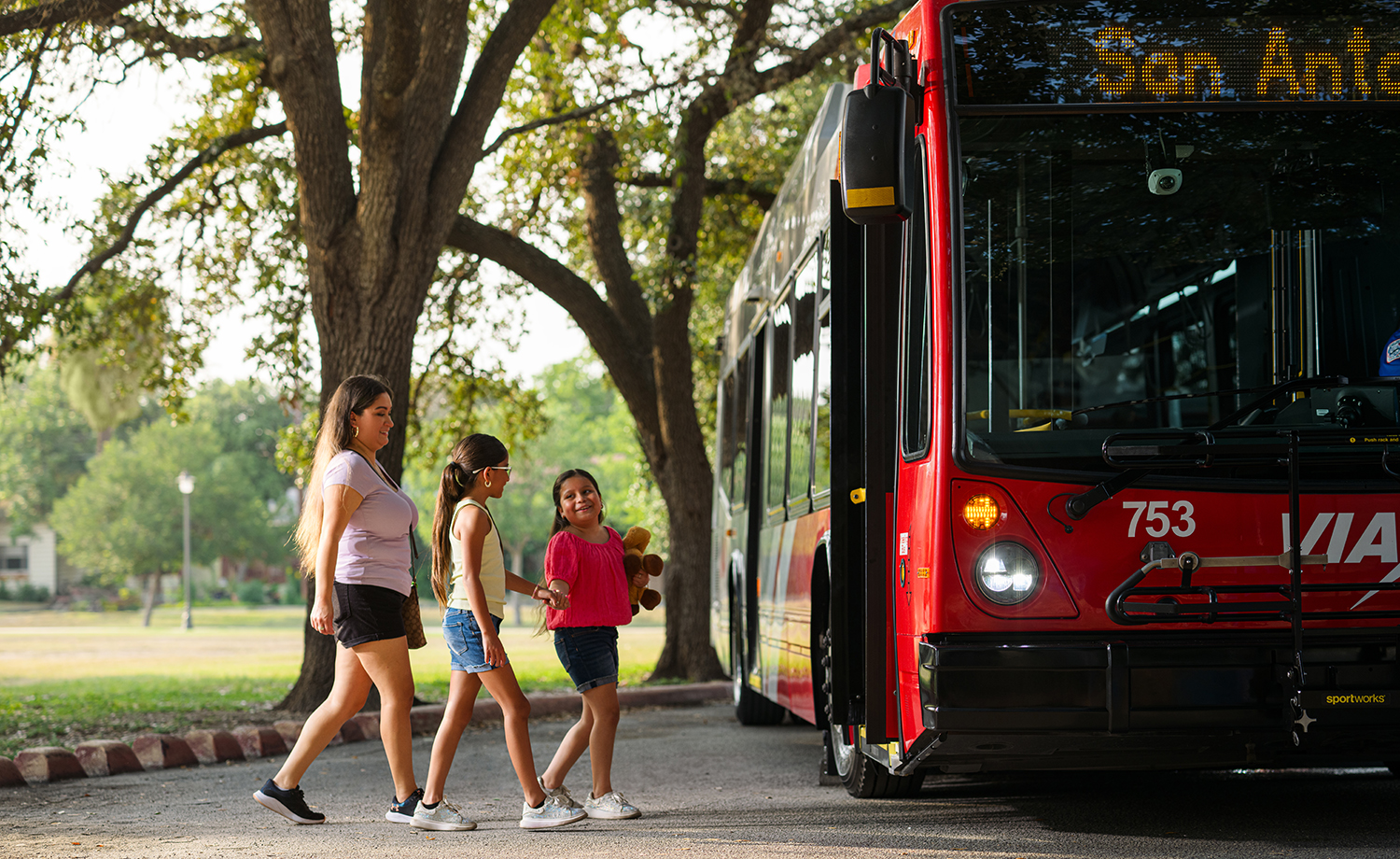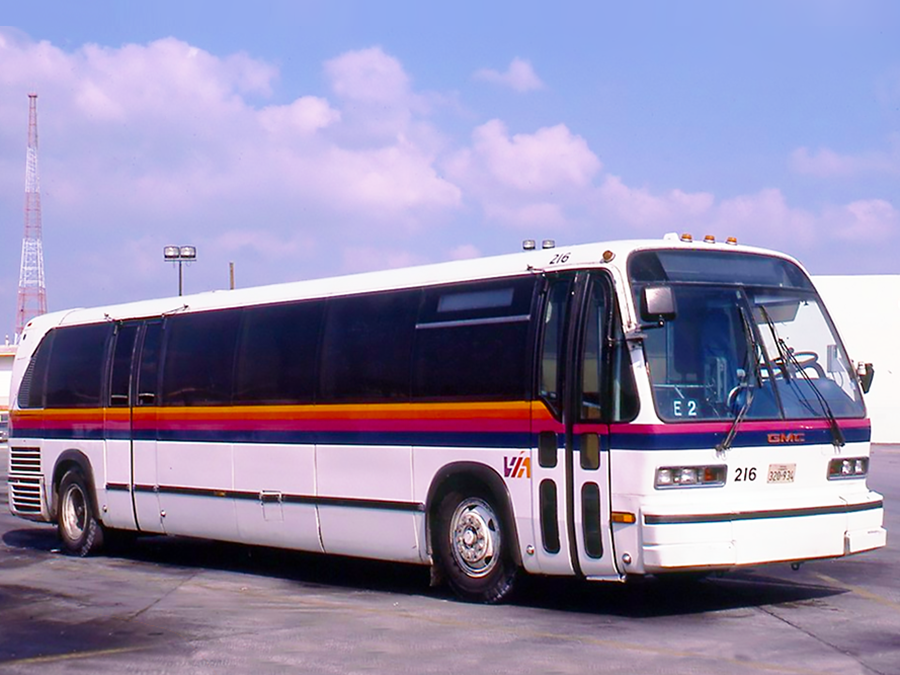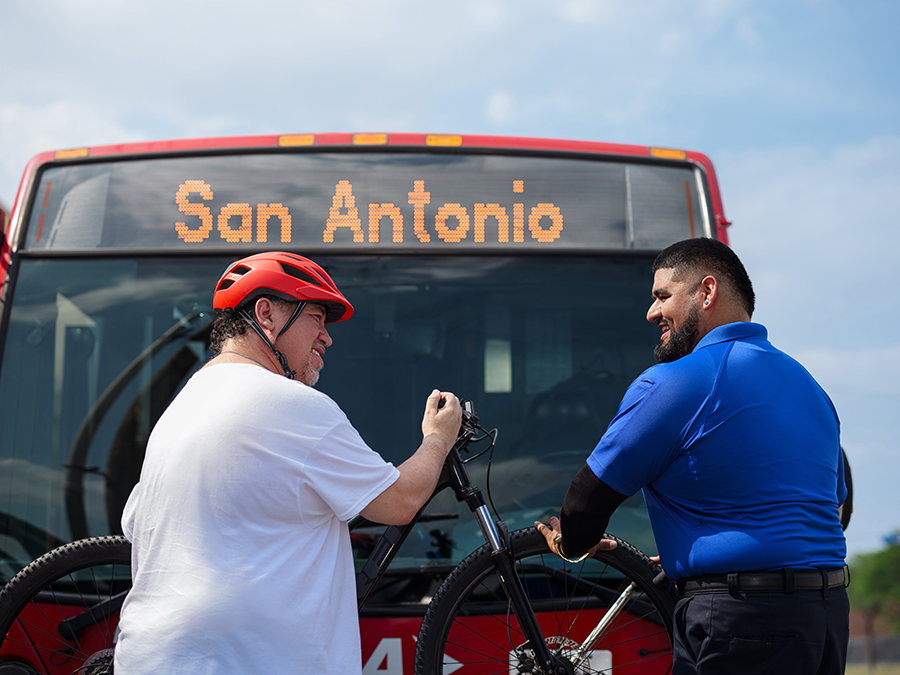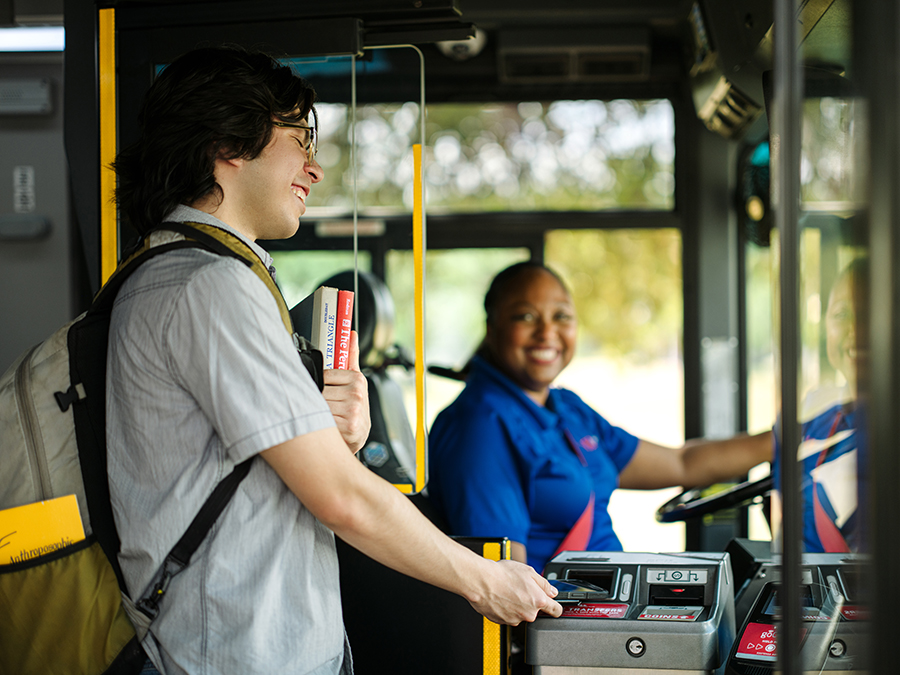Resuming Telecom Tax Could Boost Transit
As the least-funded major metropolitan transit authority in Texas, VIA seeks to restart collection of sales tax on telecom services to increase funding so that the agency can continue to improve frequency of its transit services.
Why VIA Needs the Telecom Tax

Placing telecom back onto the list of taxable goods and services would amount to about 9 cents on a $100 phone bill, but it could generate $10 million annually for VIA. Funds would support increased frequency, meaning transit users would spend less time waiting for a bus. With higher frequencies on routes, more residents choose to use transit, and that’s good for the entire community.
Public transit provides access to work, education, health care and opportunity. In transit, frequency is key. When wait times for buses go down, ridership goes up. The last time VIA and the City of San Antonio partnered to increase bus frequency on 18 routes, ridership surged by up to 30%.
More frequent buses require more funding. The restoration of the telecommunications tax would make a significant difference, enabling VIA to invest in the buses, infrastructure, and services vital to our community.
Telecom Tax History

When VIA was first established by local voters in 1977, telecommunications were among the taxable services that supported the agency. However, a decade later, the Texas Legislature exempted those services sales tax. Local entities like VIA were given the authority to lift that exemption whenever needed.
When lawmakers passed that exemption in 1987, they did not remove telecom from the taxable list for the state’s sales tax exemption — and they gave local taxing authorities the ability to place telecom back onto the list of items that they can tax.
Since then, hundreds of local taxing authorities across the state of Texas have included telecom in what’s taxed. Most of the state’s metropolitan transit authorities already do. The City of San Antonio collects telecom sales tax. In fact, more than 500 local taxing entities across Texas have taken the necessary action to include telecom in what’s taxable in their areas.
VIA is now taking that step.
To do so, the San Antonio City Council is required under state law to approve the action.
About VIA Transit Funding

A historically underfunded transit agency, VIA was the first metropolitan transit authority created in Texas. In 1977, with no existing model in Texas, San Antonio approved a ½-cent sales tax to fund VIA. In the ensuing years, Austin, Houston and Dallas all created their MTAs and dedicated a full 1% of sales tax to transit.
Despite underfunding, VIA was named the “Most Outstanding” transit authority in Texas in 2024. VIA makes the most of the resources the community provides, but its ability to improve frequency is constrained by its resources.
What it Means for You

For most consumers, this change would amount to just a few cents more on cell phone bills — a minor amount that adds up to big improvements for everyone. Those few cents, multiplied across all telecom users, would generate millions of dollars to improve public transportation and access to work, education, health care and opportunity in San Antonio.
The Bottom Line

Restoring telecommunications to the list of taxable items — like other goods and services — contributes to building a dependable infrastructure for the community. For VIA, the community, and the for future of San Antonio’s public transit system, restoring telecommunications to the list of taxable services is the right move for the community VIA serves and the future of San Antonio’s public transit system.
Let’s move forward together to ensure that everyone has access to reliable, frequent, and efficient public transportation.
Did You Know?
-
In 1973 ...
the Texas Legislature authorized the creation of Metropolitan Transit Authorities and gave them the ability to collect up to 1% in local sales tax.
-
In 1977 ...
San Antonio and five suburban areas voted to establish VIA Metropolitan Transit by approving a ½-cent sales tax to fund transit service.
-
From 1977 to 1987 ...
VIA collected sales tax on a long list of taxable goods and services, as defined by the Texas Comptroller. That included telecommunications services.
-
In 1987 ...
telecommunications companies sought an exemption for sales tax on telecom services. The Texas Legislature approved the exemption but provided the ability to repeal the exemption.
-
To Date ...
more than 250 Texas cities, 40-plus counties, 200 Special Purpose taxing districts, and others have repealed the telecomm tax exemption.
-
Telecom Sales Tax ...
in the State of Texas (6.25%) and City of San Antonio (1.25%) are already assessed and collected; the VIA sales tax portion will be 0.5% (approx. 4 cents on a $50 bill).